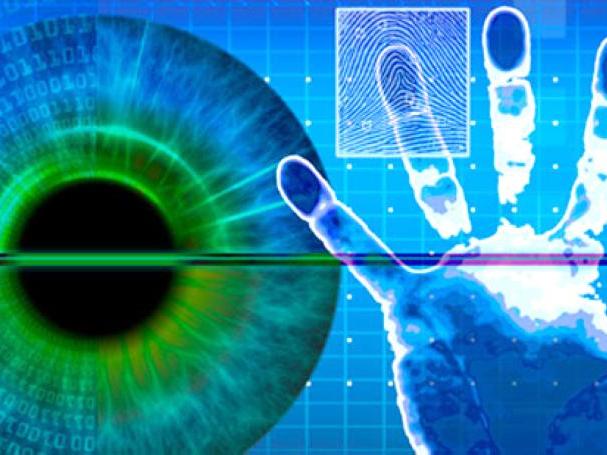
Brian Sims
Editor

Brian Sims
Editor
FRASER SAMPSON has been appointed as the Government’s independent Biometrics and Surveillance Camera Commissioner in a new role that combines the two part-time posts of the Biometrics Commissioner and the Surveillance Camera Commissioner.

The Biometrics Commissioner and Surveillance Camera Commissioner roles were established by the Protection of Freedoms Act 2012 which introduced the regime to govern the retention and use by the police service of DNA samples, profiles and fingerprints and to promote the appropriate overt use of surveillance camera systems by relevant authorities in England and Wales.
Formerly an Honorary Professor and Research Fellow at Sheffield Hallam University, Sampson is a solicitor of the Senior Courts of England and Wales. He has previously served as CEO of the Police, Fire and Crime Commissioner in North Yorkshire. Between 2006 and 2019, Sampson was the CEO and General Counsel for the Police and Crime Commissioner in West Yorkshire and also executive director of the Civil Nuclear Police Authority.
Prior to all of this, Sampson was a serving police officer for West Yorkshire Police and the British Transport Police between 1982 and 1996.
Sampson, who took up his new post on Monday 1 March, will now actively promote compliance with the Surveillance Camera Code of Practice and also concentrate on rules in relation to the police service’s use of DNA and fingerprints.
Home Secretary Priti Patel commented: “I’m pleased to appoint Fraser Sampson as the new Biometrics and Surveillance Camera Commissioner. It’s absolutely vital that the Government works to empower the police to use technology designed to keep the public safe, while at the same time maintaining their trust. Fraser Sampson’s extensive experience in law and policing makes him the right person to take up this role.”
Fast-moving and challenging
Speaking about his new appointment, Sampson explained: “I’m delighted to have been appointed to cover these two distinct, but now increasingly overlapping roles. I look forward to working with all partners in what is a fast-moving and challenging area of balancing the public interest and considerations with the rights of individuals.”
The recruitment campaign for the role was conducted in line with the Governance Code for Public Appointments. Importantly, the statutory responsibilities and duties for both of the previously separate roles remaining the same now that they’re combined.
The biometrics-focused element of the role is trained on keeping under review the retention and use by the police service of DNA samples, DNA profiles and fingerprints. There’s also a requirement to decide on applications made by the police to retain DNA profiles and fingerprints (under Section 63G of the Police and Criminal Evidence Act 1984) and also review national security determinations which are either made or renewed by the police service in connection with the retention of DNA profiles and fingerprints.
The statutory duties of the Surveillance Camera Commissioner are to encourage compliance with the Surveillance Camera Code of Practice, continually review and assess how it’s working in practice and provide advice to Government ministers on whether or not the document needs amendment.
The Surveillance Camera Commissioner is responsible for providing advice on the effective, appropriate, proportionate and transparent use of surveillance camera systems and also on operational and technical standards. The role doesn’t involve enforcing the Surveillance Camera Code of Practice, inspecting CCTV operators to check their compliance with the document or providing advice in respect of covert surveillance operations.
CCTV User Group's view
The CCTV User Group has welcomed Fraser Sampson’s appointment. Peter Webster, director of the CCTV User Group, observed: “We welcome the appointment of the new Commissioner to oversee and promote compliance with the Surveillance Camera Code of Practice. Fraser comes to the office with excellent credentials, and we very much look forward to working with him in his new role to promote high standards in the use of CCTV surveillance for public safety and security.”
Ilker Dervish, vice-chair of the CCTV User Group, noted: “The members of the CCTV User Group welcome the appointment of Fraser Sampson as a clear confirmation that the Home Office continues to recognise the importance of public space CCTV systems in our communities. We’re certain that Fraser’s experience and expertise will be a valuable contribution to the continuing development of regulations, guidelines and standards signposting a clear path towards more effective and professional use of video surveillance systems.”
The position of Surveillance Camera Commissioner had been vacant since the departure of Tony Porter QPM LLB last December. Porter held the office and successfully promoted the Surveillance Camera Code of Practice for seven years. The Code of Practice is based on a document originally produced by the CCTV User Group which was then adopted and developed by the first Surveillance Camera Commissioner, namely Andrew Rennison.
Best way forward
Before leaving office, Tony Porter voiced his strong opinion that the Government’s decision to combine the two previously separate roles isn’t the best way forward. Read his exclusive article in the November 2020 edition of Security Matters (pp24-26).
Porter also served as a guest on Episode 11 of the Security Matters Podcast.
Dorset House
64 High Street
East Grinstead
RH19 3DE
UNITED KINGDOM
01342 31 4300